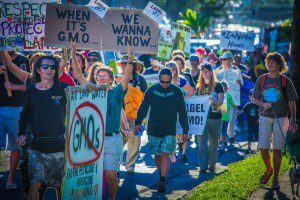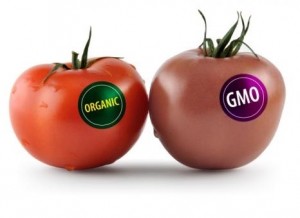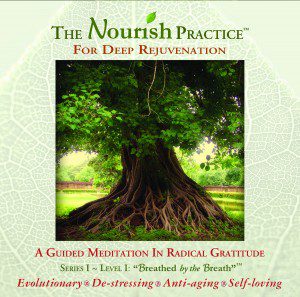Contributing Writer for Wake Up World
Arizona is one more state among many others now seeking labeling laws for GMOs. Monsanto, as many of us know, is trying to make it illegal for any state to pass such labeling legislation.
After reading an article from a local Arizona newspaper this morning, which was posted in the local No-GMO group I am part of, I want to respond to the spokesperson for the Arizona Farm Bureau Federation, Julie Murphree, who is quoted in the article, so as to counter some crucial points that are surprisingly still used by the GMO industry.
What follows is my response, as rational critique of her arguing points, which I hope you find to be informative.
The article I am pulling these quotes from is here. You might want to read it first before proceeding, but you don’t have to. Below, I will quote or make reference to Ms. Murphree’s comments, then respond.
[pro_ad_display_adzone id=”110028″]
1) Ms. Murphree is against labeling, but reportedly, “not because her organization is against consumers being informed.” She says, “Mandatory GMO food labeling implies risk where there really is none. If you label that non-GMO, it’s ‘Oh, GMO foods must be unhealthy and evil,’ and they’re not.”
Ms. Murphee, this position assumes ignorance on the part of the public. Do you not trust people to inform themselves and make their own decisions? If they think what you fear they will, too bad. And, did you ever consider that maybe they are right? It’s everyone’s right to know if their food has GMOs or not; this is primary, not your fears about what people will think. You cannot control what people think. In fact, this very attempt to inappropriately control is one of the key problems with the GMO industry to begin with.
Your job is to support the public. Even if people do end up thinking that GMOs are evil and unhealthy, this is better than subjecting them to potentially serious risk, which is reasonable to assume at this point, given the studies, which you seem to not be privy to, many of which are here.
Another thought: let’s forget the GMO food itself. The sheer mass of pesticides and herbicides sprayed on GMO food crops and engineered to be released from a GMO foodstuff’s every cell is, in my book, evil and unhealthy. GMOs are simply unnecessary. Dozens of studies have shown that organic farming can feed the world, and may be the only way to save our future. As inane and unnecessary as GMOs are — save for huge corporate profits at the expense of our entire global ecosystem — they have created too much damage to the planet already.
We cannot separate GMOs from the companies that make them. Not only are GMOs a huge injury to our world (read: evil), but Monsanto is evil, I am sorry to report. So are the other big biotech companies.
In both science and philosophy there is a tenet known as the burden of proof. The burden proof says that if you have an extraordinary claim, or one which is not self-evident, you need to provide evidence for that claim.
Because GMO seeds are an extraordinary exception to the entire course of natural history, and we ingest their GMO food products, the burden of proof is on the biotech industry to prove beyond a shadow of a doubt that GMO foods are entirely safe.
Not only has the GMO industry failed to do this — 3-month trials by industry-funded studies is unacceptable and the “substantial equivalence” designation by M. Taylor and friends was a fraud — but independent studies are ever-mounting and sounding an alarm bell for the dangers of GMO foods.
One was released just last week linking GMO with cancer and leukemia. It is here.
And here is a handy link where you can find some more of these studies. The Seralini study, the only long-term feeding study on GMOs, is also available at this link.
Ms. Murphree, there is no long-term, independent study showing the safety of combining several pesticides (i.e., Round Up and 2,4-D in the new stacked trait GMOs) used in GMO agriculture, which is also an extraordinary and anomalous proposal also deserving of the burden of proof.
2) Ms. Murphree continues, saying those who are concerned can buy USDA-certified organic products and know they are not getting anything made with GMOs.
To my understanding, there are many foodstuffs (like chips and crackers and soymilk, for examples) that contain both organic and non-organic ingredients. The label might say USDA-certified organic, but not all the ingredients are necessarily organic. So, there is no standard, systematic way to tell if it has GMO ingredients amid organic ones.
 Further, before we had to deal with GMO’s there was this stuff called “commercially grown food.” Those of us who wanted to avoid non-organic food simply had to avoid commercially grown food that and choose food with an organic label. Ironically, that was at a time when one could simply choose the organic label. We assumed any ingredient that was not organic was commercially grown.
Further, before we had to deal with GMO’s there was this stuff called “commercially grown food.” Those of us who wanted to avoid non-organic food simply had to avoid commercially grown food that and choose food with an organic label. Ironically, that was at a time when one could simply choose the organic label. We assumed any ingredient that was not organic was commercially grown.
Currently, the reason we cannot rely on organic labels to fully inform us is because, to my knowledge, commercial, non-GMO farming still exists. An organic label does not help us differentiate between GMO and non-GMO commercially grown foods.
3) Ms. Murphree also said labeling “could require companies to have separate processing lines for handling GMO and non-GMO foods to ensure compliance with labeling laws.”
Sorry about that. GMO foods need to prove their safety; safety is first. We don’t offer shortcuts to companies that handle radioactive materials or proven carcinogens because it’s otherwise a hassle for them. GMO foods should not even be in the public domain, much less unlabeled, and complaints that labeling them might create some logistical inconveniences are not justifiable. Sorry.
4) Last, but certainly not least, Ms. Murphree is quoted as saying, “We’re getting our eyes off the ball. The ball is, we need to eat more balanced diets. We need to eat more fruits and vegetables. And we need to stay away from too much sugar and too much fat.”
Ms. Murphree, it seems as though you just took your eye off the ball. This is discussion about GMO labeling, not general nutritional advice. In truth, some of us need to eat more fruits and vegetables, some of us need to eat fewer. Regardless, what is on subject here, is that we might all do better to eat no GMOs until they are proven safe. Until pesticides, which are part and parcel of GMO production, are eliminated from GMO cultivation, GMOs are not possibly safe.
In sum, please tell all your friends in Arizona and in other states to sign the ballot initiative for mandatory GMO labeling.
Lastly, please join the GMO Eradication Movement Facebook Page to learn how to easily identify GMO foods, to safeguard your and your family’s health, and to stay abreast of breaking GMO news.
The Nourish Practice
Jack Adam Weber’s “The Nourish Practice” is an easy, guided meditation-Qi Gong practice in radical gratitude and self-love. It is an Earth-based, body-centered practice — at once physiological and mythological — that is deeply relaxing and replenishing, especially for modern-day burn-out syndrome, and requires little physical effort.
The Nourish Practice “resets your nervous system” and fosters a rich inner life. You can purchase The Nourish Practice as a CD or Digital Download here.
Previous articles by Jack Adam Weber:
- Relationships: The Costs of Staying When We Should Leave
- Sex, Love and Attachment
- Emotional Work
- Choosing a Partner – How to Avoid Relationship Suicide
- Re-Thinking Love: Why Our Hearts Must Also Be Minded
- Spirituality – Reality Check
- 11 Crucial Tips for Better Digestive Health
- Shadow Work: Becoming a Sustainable Light Worker (Part 1)
- Oneness in Action: The GMO Eradication Movement
- After the Hurricane: Lessons from the Heart of Nature
- Relationships: How They Can Make Us Happier
- Heartbreak – Loving Ourselves Through Difficult Times
About the author:
 Jack Adam Weber, L.Ac. is a Chinese medicine physician, author, celebrated poet, organic farmer, and activist for body-centered spirituality. His books, artwork, and provocative poems can be found at his website PoeticHealing.com. He is also the creator of The Nourish Practice, an Earth-based rejuvenation meditation. Weber is available by phone for medical consultations and life-coaching.
Jack Adam Weber, L.Ac. is a Chinese medicine physician, author, celebrated poet, organic farmer, and activist for body-centered spirituality. His books, artwork, and provocative poems can be found at his website PoeticHealing.com. He is also the creator of The Nourish Practice, an Earth-based rejuvenation meditation. Weber is available by phone for medical consultations and life-coaching.
You can connect with Jack Adam Weber on Facebook or by emailing [email protected].
[pro_ad_display_adzone id=”110027″]








